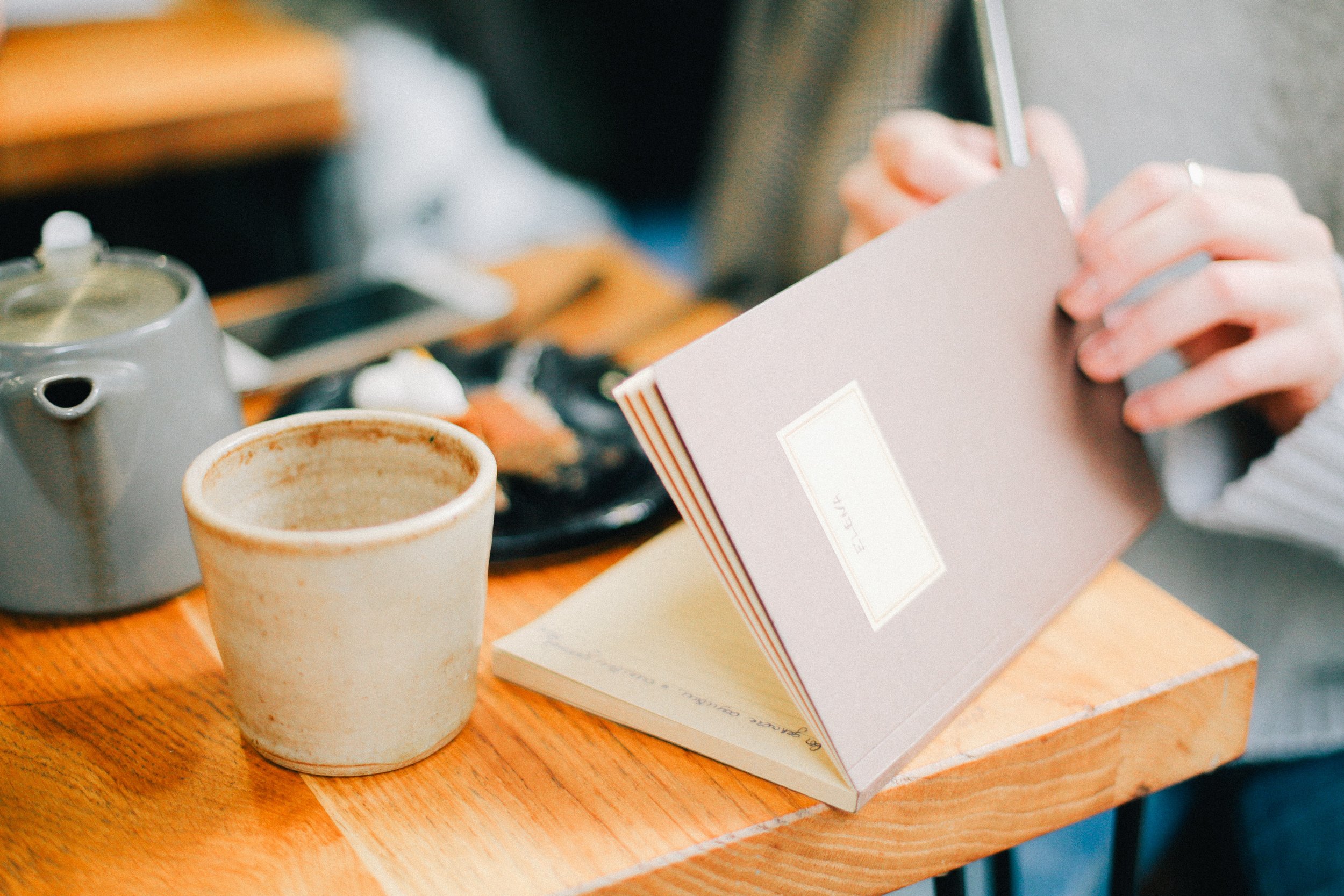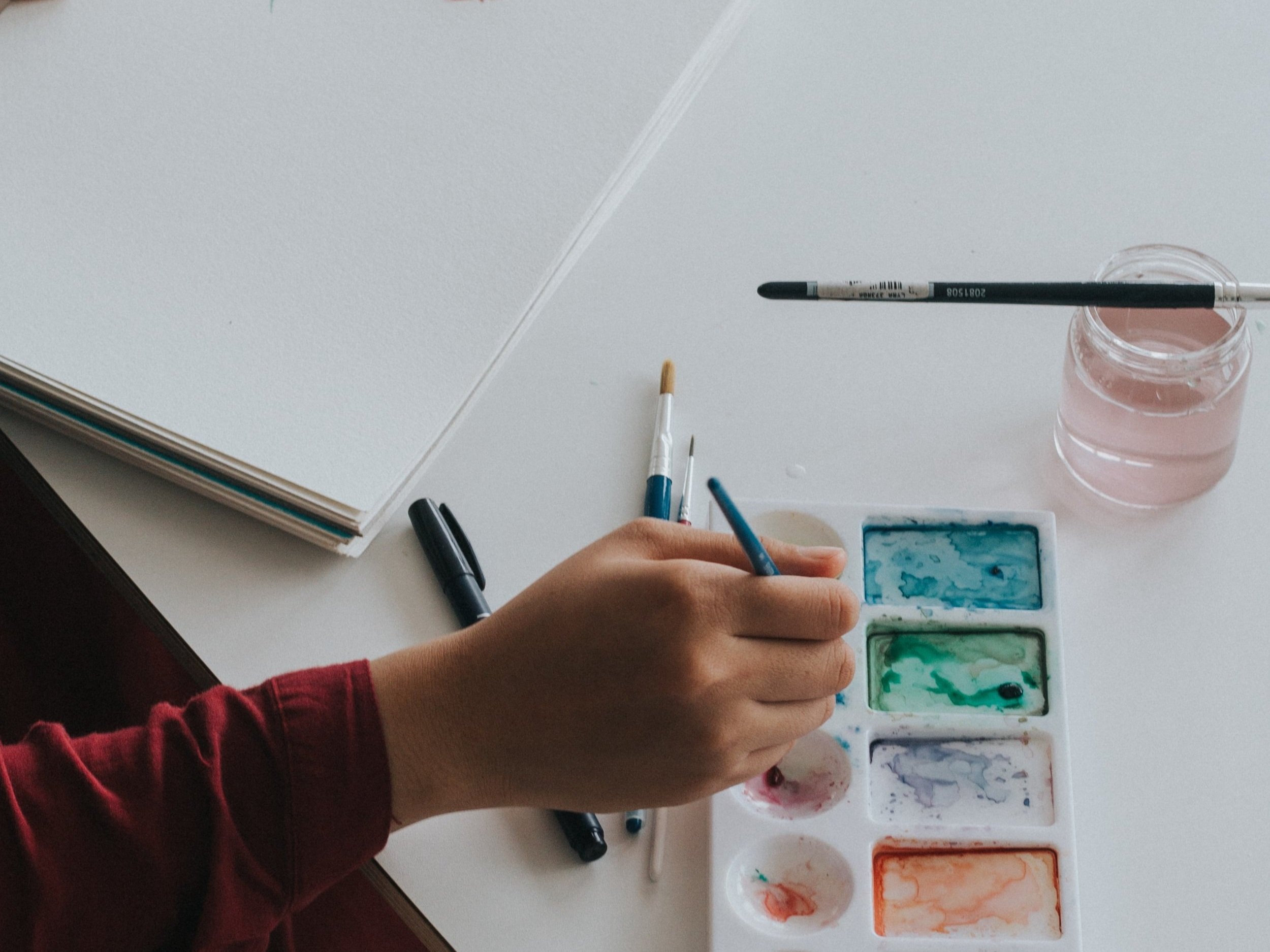Your seven step prescription for self-care
A simple guide to getting started with daily self-care in seven easy steps
Article by Coralie Richards
At the beginning of the year, my emotional fuel tank was empty.
Like millions of other people worldwide, I’d started 2022 full of hope and excitement, pledging my commitment to numerous ‘resolutions’ that just didn’t eventuate.
Instead of turning into the 2022 version of my very best self, my household was diagnosed with COVID-19 on New Year’s Eve. Talk about getting off on the wrong foot!
We have been living in uncertainty for over two years (and counting) through the COVID-19 pandemic. Millions of us have been forced apart from loved ones at times when we've needed them most.
A study on the state of mental health during the COVID-19 pandemic in Australia found that 78% of respondents said that their mental health was either ‘a little worse’ or ‘a lot worse’. Not surprising, perhaps, but a concerning trend that will likely have implications for years to come.
I had my second baby during the pandemic, my UK-based parents could not meet her in Australia due to travel restrictions, and my mother was diagnosed with ovarian cancer.
Feeling out of control
The rollercoaster of emotions that ensued made me feel like my life was out of control, and I lacked the drive to try and take even the first step to turn this feeling around. It seemed like there was nothing to look forward to in the future.
I was on a downward trajectory, and I needed to ask for help. If you feel this way, it’s essential to recognise your feelings and reach out to someone. I highly recommend speaking with your GP, as that was the second vital step I took to help propel me forward.
As the old saying goes, we can’t change what happens to us, but we can change how we respond. Life hands us challenges. Life gives us joy. And that is the unpredictable beauty of travelling on this wild ride!
During the uncertain times in which we live, self-care is one action we can take. A gift we can give ourselves to ensure the best chance of happiness and health in our lives.
The first step to healing was to make a simple plan. Even working up the energy to do that was challenging, but I knew nothing would change unless I did. My plan looked something like this:
Go for a walk
See the GP
Make an exercise plan
Stop drinking alcohol
My GP encouraged me to start writing daily to-do lists, even things as simple as going for a walk, spending thirty minutes on laundry or reading for an hour. As I started writing these lists, I found myself summoning more energy. I didn’t have ‘decision fatigue’ as I had already cemented the tasks I needed to do for the following day.
Like many others during the relentless groundhog life of lockdowns, I worked from home and felt trapped and bored. I started opening a bottle of wine in the evening out of habit and frustration.
I understand now that this was an attempt to dull the anxiety and avoid dealing with my emotions. In many ways, abstaining from alcohol has improved my life, especially my anxiety and energy levels.
After only a week following my new plan, I started feeling like myself again.
During the year so far, I have tried and tested some different (simple) ways to prioritise my self-care, which I want to share with you to help you on your path to self-care success!
*Disclaimer: I am not a medical professional, and my advice may not be best for your situation. Please always reach out to your GP for professional physical and mental health advice.
1. Practice gratitude daily
After advice from my doctor, I started writing daily in a gratitude journal. Did you know expressing gratitude has been proven to improve mental health and mood?
Feel free to write in a blank notebook. Or even the notes app on your phone. Write about your day, what you’ve learned, the things you’re thankful for. You can even include drawings and doodles. Let your imagination run free.
If you prefer a structured approach, I like this Gratitude Journal from Amazon, which is only $11. It takes me 5 minutes at the beginning of my day.
Expressing gratitude helps anchor my thoughts and refocus my attention on the 'bigger picture’, rather than obsessing about small, insignificant things, which are often beyond my control.
It’s been found that when writing a gratitude letter to someone, whether you send it to them or not, you still reap the mental health benefits of expressing your gratitude.
Using positive language helps you appreciate the people in your life and shift your attention from negativity.
2. Create some time for YOU
Take some time, intentionally, for yourself. Turn off any distractions and create a comfortable space. This time is a gift to spend as you choose.
I was born an early bird, but most of my friends would prefer to jump in a bucket of ice than wake up before sunrise.
Some of the most successful people I know are most productive and creative after midnight.
Choose a time that works for you.
I set myself a goal of waking up at 5am every day. 5am means I have an hour to myself before my children wake up. Once they're up, it's pedal to the metal!
The power hour gives you extra time to meditate, read, write in your gratitude journal, walk outside, or do a workout to set you up for the day ahead. My preferences are reading, drinking strong coffee and writing in my journal.
Choose an activity you enjoy or a ritual that helps you thrive - which leads me to my next point.
3. Explore new (and old) activities
Ask yourself, what are some things I like doing? What are some of the activities I enjoyed as a child? It could even be picking up a brand new hobby you’ve always admired.
One of my best friends recently did an evening pottery class, which sounded fun and forced her out of her comfort zone, which is where great things happen.
I have started painting for fun. I am no artist, but everyone has to start somewhere. I bought a (rather intricate) paint-by-numbers, which is a calming activity when I have a spare moment and want to relax.
Painting gives me a chance to focus my attention, and the act of painting itself is therapeutic.
4. Read to be inspired
I have been using an excellent book summary app called Headway. The app is a library full of chapter summaries from hundreds of different books.
From self-help to history, current events and biographies. It’s a great way to fill your head with ideas if you’re commuting or going for your daily walk. It’s also an easy way to discover new books that you might like to read.
On my morning walks and during some of my workouts, I like to find books around positive self-help topics or subjects I want to learn.
I usually listen to music, but I’ve seen that swapping songs for audiobooks has done wonders for my mood in the mornings. I’ve learned about many new topics, including business writing, public speaking, motivation, and even Harry and Meghan!
5. Embrace the silence and meditate
Meditation is not one of my strengths, I’ll admit.
I find great difficulty in being still, whether it be watching a movie, practising yoga or even writing.
I naturally operate in activity bursts, where I am hyper-productive, focused and energetic.
But meditation is beneficial to all of us, requires no equipment and can be done in as little as five minutes.
The act of meditating is focusing your attention inward to induce a state of deep relaxation.
A research review published in JAMA Internal Medicine in January 2014 found meditation helpful for relieving anxiety, pain, and depression. For depression, meditation was about as effective as an antidepressant.
I never found yoga an appealing activity because I believed a successful workout means dripping in sweat with a heart rate of above 160.
When I now take the time to focus and breathe - through yoga or meditation, it helps me feel calmer overall; you don’t need to commit much of your time to reap the benefits of meditation. This 5-minute beginner’s meditation video is an excellent place to start.
6. Sleep better
More sleep doesn’t always equal better sleep.
According to the Sleep Foundation, eight and a quarter hours is the average amount of sleep required for a healthy adult. According to a 2016 Sleep Health Survey of Australian Adults, the average actual sleep time for adults in Australia is just seven hours.
Alcohol decreases overall sleep quality, resulting in shorter sleep duration and more sleep disruptions.
Two months ago, as part of my self-care plan, I made a commitment to avoid drinking alcohol. Alcohol is a depressant and particularly unhelpful for someone like me who suffers from anxiety.
Alcohol creates a negative cycle that begins with “numbing” your anxious, racing thoughts, followed by a tidal wave of anxiety the next day. What is the solution? The short-term solution is drinking again to dampen the anxiety. The cycle continues.
It wasn’t until I stopped drinking twice per week that I was able to establish my natural sleep rhythm. On the nights when I would previously drink alcohol, I stayed up until midnight and wanted to wake up later.
Alcohol causes sleep disruptions later in the sleep cycle, as liver enzymes metabolise alcohol. These sleep disruptions can also lead to excessive daytime sleepiness and other issues the following day.
My new routine consists of going to bed at around 9.30pm and waking between 5-5.30am. As a result of sticking to this new habit, I have realised that I need between seven and seven-and-a-half hours of sleep per night.
After just two weeks of jumping out of bed before I had the chance to think and into the arms of a steaming hot strong cup of coffee, I started waking up energised before my alarm!
7. Be kind to yourself
Imagine turning to your best friend and telling her: “You look so fat!.. You’re not smart enough for that promotion. And you most certainly are not as pretty as [insert movie star],”
I’ll assume you would never use those words when talking to your friend. Would you tell them to yourself?
Self-talk is your inner dialogue - how you communicate with yourself. For most individuals, this is a subconscious process—a bitter and invisible enemy seeking to sabotage any opportunities that come our way.
Negative self-talk can harm your self-image, relationships, and overall sense of wellbeing.
I didn’t realise the extent of my self-critique until I listened to an engaging book on Headway called Negative Self-Talk and How to Change It by Shad Helmstetter.
Once I began to acknowledge and listen to my inner conversation, I would question whether each thought was helpful, then ‘swipe’ the negativity away, as it was so well-described in the book summary above, just like on the Tinder app!
I then started repeating positive affirmations internally each morning. The book suggests you can “fake it” till you make it. Tell yourself, “I am strong”, “I am smart”, “I am powerful”.
Reciting these words over and over had a significant impact on my mood. Eventually, the aim is that you believe them (because they are true!).
If you’re looking for more content around mindfulness and self-talk, I recommend the resources on Headspace. The Headspace guided meditation app is highly regarded by physicians and was recommended by my GP.
Self-care is an essential aspect of your physical and mental wellbeing that deserves your attention. As the saying goes, you can’t pour from an empty cup.
Putting yourself first - as a person, not a parent, partner, or employee is vital to nurturing your potential. We can’t be our best selves without preserving what’s at the core - our mind and body.
Self-care is a series of steps taken regularly to benefit fully. Self-care is not a destination, so don’t beat yourself up if you cannot tick off each of the seven steps right away.
This seven-step prescription works just as well if you can only work on the elements that suit you and your lifestyle—research other ways to practise self-care and build yourself a starting plan.
Your plan can consist of just one or two habits in your daily routine. The hardest part is just getting started. For example, writing in a gratitude journal for 10 minutes and setting 30 minutes to read each day is a manageable self-care commitment to send you in the right direction.
Spending under one hour of your time on self-care each day will show you that it’s worth your time and effort as you start to reap the rewards.
Good luck on your self-care journey!
““Rest and self-care are so important. When you take time to replenish your spirit, it allows you to serve others from the overflow. You cannot serve from an empty vessel.””
Article by Coralie Richards
Coralie Richards is a writer and mother from the UK. She has worked as a copywriter and digital marketer for 12 years across more industries than she can count on both hands.
Coralie lives in Sydney, Australia, with her husband and their two lively daughters. A lover of nonfiction books, long walks, and strong coffee, Coralie is also Britney Spears's number one fan.












